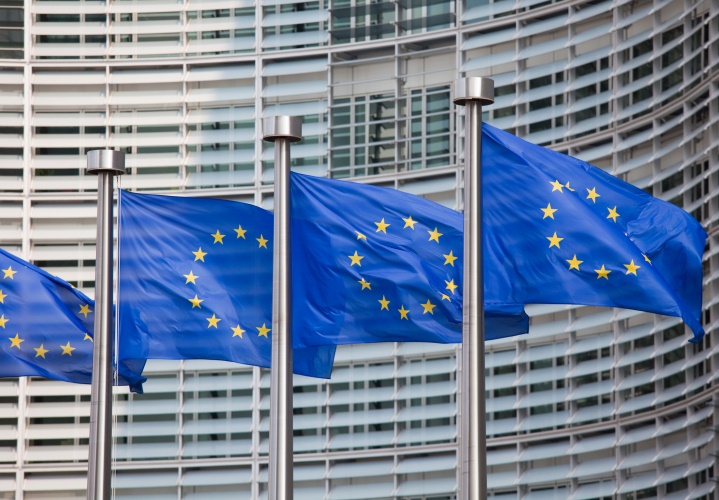The recast European Insolvency Regulation (EIR) applies to all insolvencies commencing on or after 26 June 2017. It replaces the EC Regulation on Insolvency Proceedings (2000)(the “EC Regulation”), although the EC Regulation will still apply to insolvencies commenced before that date. Its scope has been extended from collective insolvency proceedings to include rescue and rehabilitation proceedings (e.g. administration and CVAs/IVAs). However, it still excludes receivership, administrative receivership and schemes of arrangement. The EIR applies to all EU member states, except for Denmark (which opted out).
It is hoped that the EIR will improve cross-border cooperation and address some of the EC Regulation‘s shortcomings. Amongst other things, the EIR deals with:
- the appropriate jurisdiction for opening insolvency proceedings;
- the applicable law relating to proceedings;
- compulsory recognition of proceedings across member states; and
- cooperation between and coordination of insolvency proceedings relating to group companies.
Some of the key changes brought in by the EIR are summarised below.
1. Forum shopping
The EIR provides a new definition of COMI which codifies principles set out in case law. COMI is now defined as the place where the debtor conducts the administration of its/his or her interests on a regular basis and which is ascertainable by third parties.
Subject to evidence to the contrary, COMI is presumed to be:
- for companies, the location of the registered office, save where that location has moved across member states in the previous 3 months.
- for individuals:
- their principal place of business (if they are a professional), except where that location has moved across member states in the previous 3 months; or
- their place of habitual residence (for all other individuals), except where they have moved member states in the previous 6 months.
Courts are now required of their own volition to examine whether a debtor’s centre of main interests (COMI) is actually located within their jurisdiction before opening insolvency proceedings. The EIR draws a distinction between forum shopping which benefits, and hence is favourable to, creditors as opposed to achieving a better result for the debtor; attempts to shift COMI are expressly prohibited where it can be established that the principal reason for filing insolvency proceedings in the new jurisdiction is to ‘materially impair the interest of creditors’.
2. Secondary proceedings
Where main insolvency proceedings are already on foot, a court in another member state may refuse or postpone (for up to 3 months) a request to open secondary proceedings at the request of the officeholder in the main proceedings. In the alternative, the main officeholder can offer to give a unilateral undertaking that he will distribute assets in accordance with the distribution and priority rules local to the jurisdiction in which the application for secondary proceedings could have been issued (known as ‘synthetic secondary proceedings’). The aim here is to avoid the opening of potentially disruptive secondary proceedings altogether in another member state, whilst still providing protection for local creditors.
3. Cooperation and coordination of insolvency proceedings for group companies
Where insolvency practitioners (IPs) have been appointed as officeholders to two or more members of the same group of companies, the IPs are obliged to cooperate and share information with each other. The same obligation is also imposed on courts with jurisdiction in relation to the relevant proceedings.
In addition, where several members of the same group of companies are insolvent, any IP appointed over one member may propose ‘group coordination proceedings’. The IP must put forward a coordination plan, a nomination for who should act as coordinator, and the likely costs of the proceedings. Group coordination proceedings will only be opened where appropriate to facilitate the effective administration of the various insolvency proceedings and there must be no financial disadvantage to any creditor or group member.
4. Further changes
Other notable changes include:
- A standard form of notice which is to be sent to foreign creditors when insolvency proceedings are opened
- Creditor claims can be lodged in any language
- Clarification on the location of assets and applicable law
- Creation of national registers of insolvency proceedings with links to a central European database (coming into force 26 June 2018)
The Brexit effect
The EIR has brought some welcome clarity to a number of cross-border insolvency issues. It is hoped that the EIR will reduce red tape and therefore assist officeholders in their administration of insolvency proceedings across EU member states.
Tim Carter, partner and co-head of Restructuring & Insolvency, commented: “While the changes brought about by the EIR are welcome and should encourage cohesion in cross-border insolvencies within the EU, the application of the EIR after Brexit is currently unclear. Without a Brexit deal to allow the continued operation of the EIR to the UK, insolvency proceedings in member states will no longer be automatically recognised in the UK and vice versa.” Whilst foreign IPs will be able to apply for recognition under UNCITRAL Model Law in the UK, and thus obtain many of the benefits of the EIR, the reverse does not apply. Carter noted: “Only 4 EU member states (aside from the UK) have implemented UNCITRAL Model Law, which means IPs from the UK could face significant obstacles in obtaining recognition in EU countries after our exit from the EU. It is therefore vital that we obtain a reciprocal agreement with the EU for the continued recognition of insolvency proceedings after Brexit, or ideally to maintain the application of EIR to the UK, or IPs could be forced to navigate the complexities of local laws to obtain recognition in EU member states.”

 Tim Carter
Tim Carter Lucy Trott
Lucy Trott